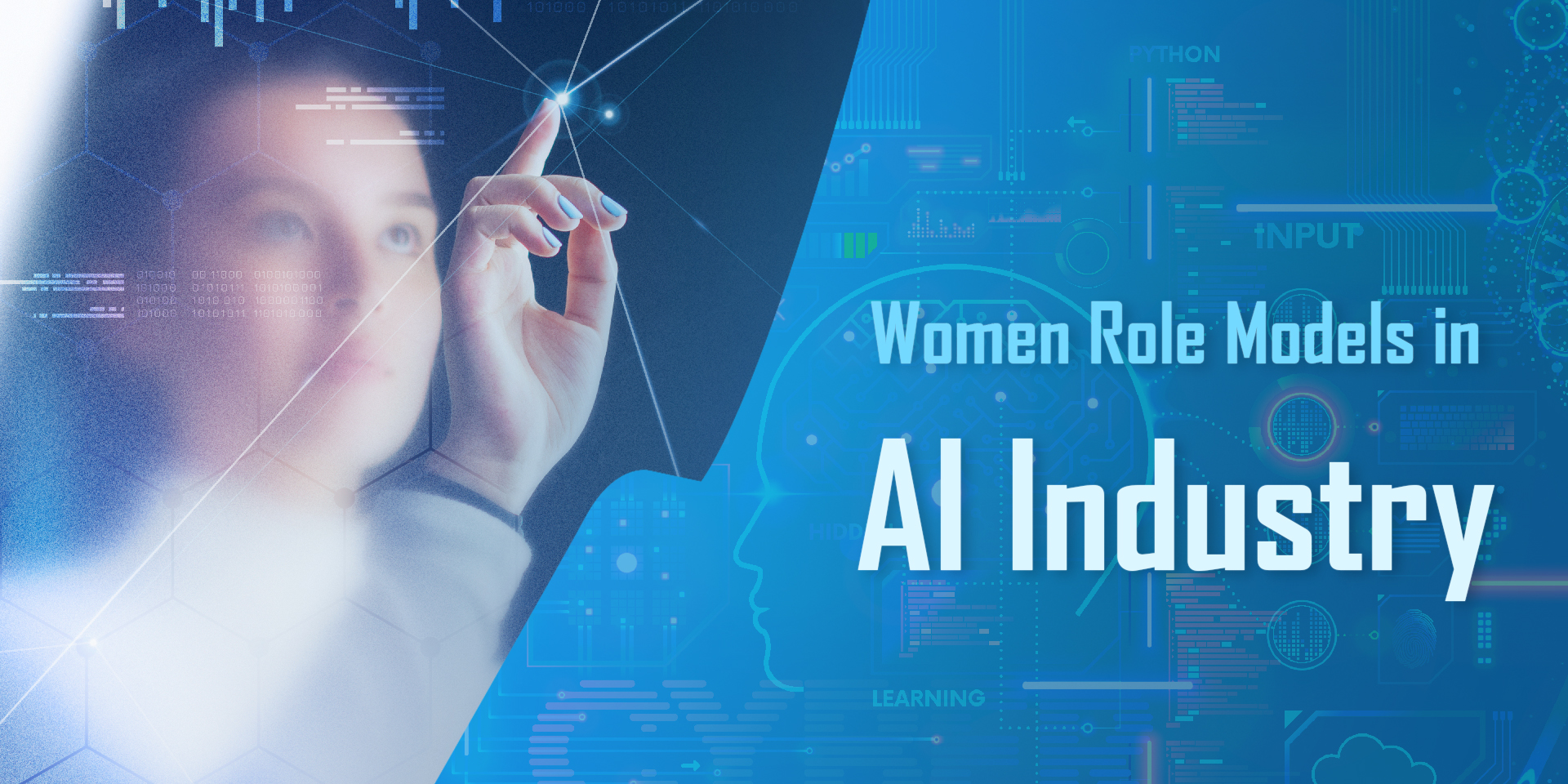Women are ready to break down barriers across organizations and industries. There are several who have made an impact in the world of artificial intelligence (AI). Many women leading in AI are role models for other women and inspire a million others to pursue their careers in the field of artificial intelligence.
A simple fact that exists, whether you like it or not, is that the field of artificial intelligence is highly male-dominated. The fact that only 22% of AI jobs are held by women demonstrates the existing gender gap.Women are under-represented in all fields of technology, including artificial intelligence.Despite the immense efforts to bridge the gender gap in leadership and managerial roles, women in AI are also under-represented in multinational companies in the AI industry.
AI as a technology is already being applied in diverse industrial verticals, from finance to healthcare. In the future, AI is all set to transform everyday life. Despite underrepresentation, there are many women leading in AI today. Some of them are academic researchers, industry executives, entrepreneurs, managers, and more. They are also women role models for the present and next generation, as well.
Here are some top women in AI who have created a significant impact in the field.
Kim Hazelwood (West Coast Head of Engineering at Meta AI Research)
- She is an expert at the interface between scalable computer systems and applied machine learning.
- Prior to Meta AI Research, she was a software engineer at Google.
- Kim was also the Director of Systems Research at Yahoo Labs.
- She also worked at Intel as a research scientist.
- She has also worked as an associate professor at the University of Virginia.
- She has authored more than 50 conference papers and one book as well.
- She has a Ph.D. in computer science from Harvard University.
- She has received the “Top 35 Innovators Under 35” award from MIT.
Yael Garten (Director of AI/ML Data Science and Engineering at Apple)
- At Apple, she leads a team of data scientists and engineers who work on improving Siri by using data as the voice of Apple’s customers.
- She is responsible for building foundations for data.
- Prior to joining Apple, she was the director of data science at LinkedIn.
- She has completed her Ph.D. from Stanford University School of Medicine in Biomedical Informatics.
- Yael has an M.Sc. from the Weizmann Institute of Science in Israel.
- She is also an advisory board member for the graduate program in analytics at Northwestern University.
- She is also a board member of Levi Strauss & Co.
Geetha Manjunath (founder and CEO of Niramai Health Analytix)
- Geeta Manjunath is an Indian computer scientist turned entrepreneur.
- She has more than 25 years of experience in the IT industry.
- She has proposed and led several research projects in the fields of artificial intelligence, cloud computing, etc.
- As one of the women leading in AI in India, her specialties include AI, ML, computer vision, data analytics, big data, and much more.
- Her Bengaluru-based start-up company, NIRAMAI Health Analytix, has developed a novel solution for non-invasive and radiation-free early-stage breast cancer screening using artificial intelligence and machine learning technologies.
Cassie Kozyrkov (data scientist and statistician; founder of the field of decision intelligence at Google)
- She is a chief decision scientist at Google Cloud and an expert in decision science.
- Cassie advises her leadership teams on decision processes, AI strategy, analytics, and much more.
- She is passionate about helping Google, its customers, and the world too.
- She has trained and guided 20,000+ Googlers in statistics, AI, and machine learning.
- At Google, she is working closely with Research and Machine Intelligence, Ads and Commerce, and Google Maps.
- Her scientific contributions include three research works with 69 citations.
- She has completed her undergraduate studies in statistics and economics at the University of Chicago.
- She has completed her graduate studies in statistics, psychology, and neuroscience from Duke University and North Carolina State University.
Bridging the gender gap is crucial.
- The participation of women is indispensable for the success of technologies such as AI and others.
- There are several efforts going on to close the gender gap in the field of artificial intelligence.
- However, in order for women to participate more actively in AI, everyone must work together to give women opportunities in management.
- Women are great leaders, and the women leading in AI prove this fact.
- Increasing the representation of women in AI and diversity in AI development is critical to delivering better results and value-based products to people.
Steps taken to promote AI for women
- Incorporating AI courses is part of the existing curriculum.
- encouraging the participation of women in STEM education from the beginning of their careers.
- highlighting the opportunities available for women in AI.
- Showcasing examples of successful AI women who have broken the negative cultural stereotypes
- Mentorship programs in organizations support women who want to pursue leadership roles.
- Creating equal opportunities for women in AI companies just like men
The women leading in AI and the inclusion of more women in the AI field will help break down the challenges that women face at the workplace and enable companies to build a more inclusive culture. Pay gaps are also clearly evident in the field of artificial intelligence. Perhaps this is also another reason why women in AI are looking to switch to other fields where they can find “equal pay for equal work.” Eliminating pay gaps between men and women can help reduce gender bias and also retain AI women who are already a part of the industry.
The future for women in AI is really bright. Several organizations have just started their journey in the field of artificial intelligence and have already realized the kind of impact that women leading in AI can make. Organizations that are employing more women in their AI teams are not only helping to bridge the gender gap that exists but also adding more value to their business. There is still a lot of work to be done before there will be a perfect balance between men and women in the AI workforce.


